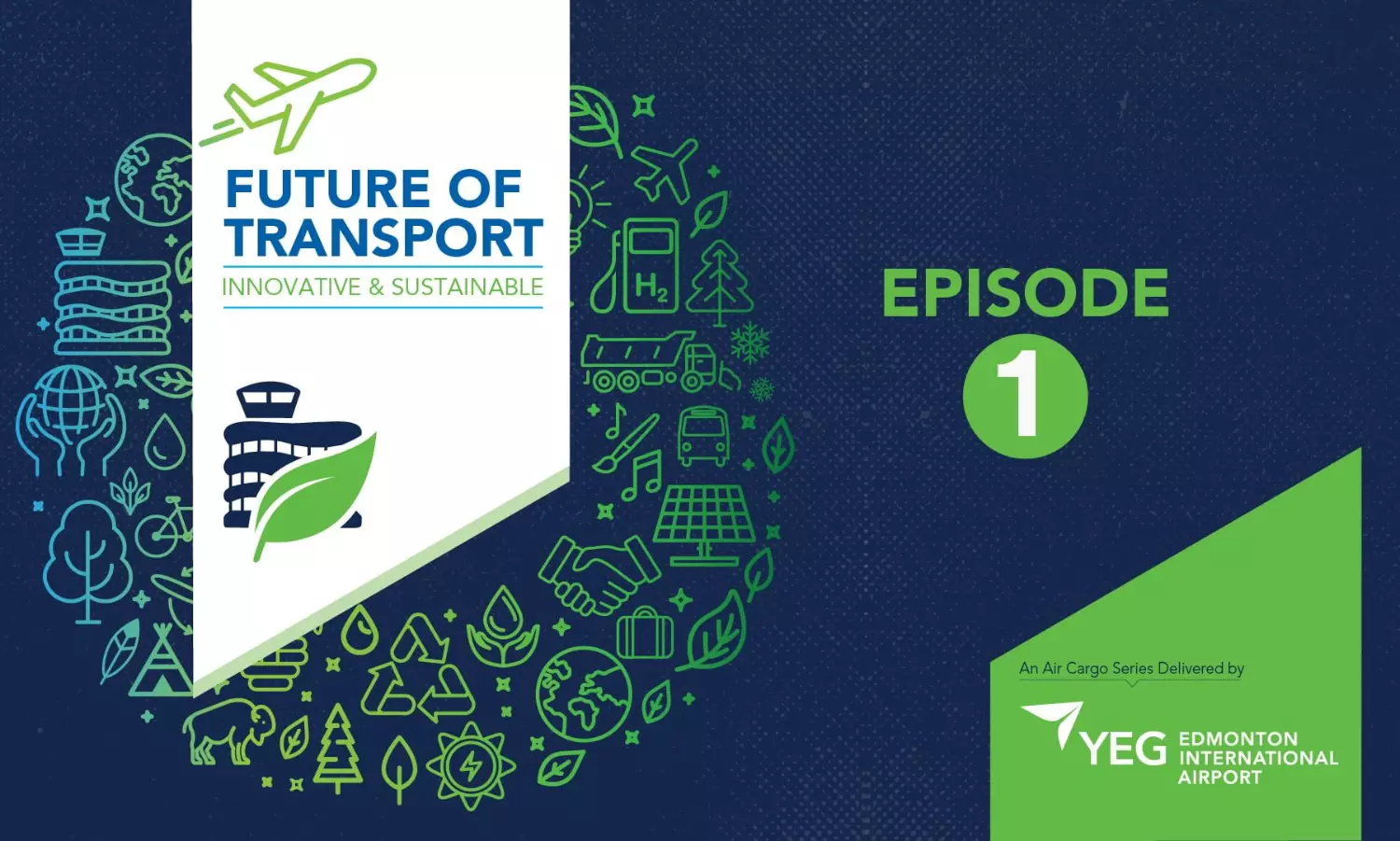YEG unveils first episode of new air cargo sustainability series
Edmonton International Airport (YEG) launched a new video series with STAT Media Group focused on the air cargo sector's journey towards a sustainable future.

The air cargo industry plays a crucial role in global trade, handling goods worth $6 trillion annually and representing 35% of global trade value despite accounting for only 1% of trade volume. In just 24 hours, the sector moves 140,000 tonnes of cargo, including vital medical supplies, significantly impacting global economic development. However, it also faces substantial environmental challenges, with air cargo emitting up to 47 times more CO2 per unit weight than sea freight.
Yesterday, the first episode of "The Future of Transport: Innovative & Sustainable" was released, marking the beginning of a video series focused on the industry's sustainability efforts. This series is developed in partnership with Edmonton International Airport (YEG).
The launch of the series was announced at Air Cargo India 2024, held at the Jio World Convention Centre in Mumbai last February, in the presence of Joe Lawrence (President, Airline Services International), Kiran Jain (COO, Noida International Airport), Burak Omeroglu (VP, Turkish Cargo), Manoj Singh (Chief Cargo Officer, Adani Airport Holdings), Vivek Chopra (Senior Director, DB Schenker), Charles Wyley (EVP, Menzies Aviation), Danita Waterfall-Brizzi (Principal Cargo & Logistics Consultant, Hospitio Consulting Service), and Glyn Hughes (Director General, TIACA).
The launch event featured the unveiling of the series logo and a recorded message from Trevor Caswell, Manager of Demand & Product Development at YEG, who highlighted the need for collaborative efforts to advance sustainability in air cargo.
Episode 1 delves into the foundational steps the air cargo industry is taking towards sustainability. It discusses critical initiatives such as using sustainable aviation fuels and advancements in aircraft technology to reduce carbon emissions. The episode provides insights into the industry's progress and its commitment to achieving net-zero carbon emissions by 2050.
The series will continue exploring various aspects of sustainability, including operational efficiencies and fleet modernisation.


